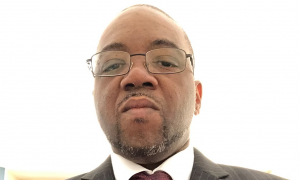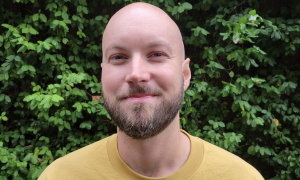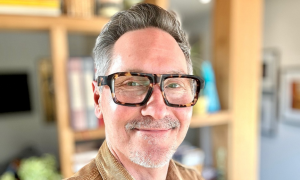Home » Jazz Articles » Chats with Cats » The Publicist: Antje Huebner
The Publicist: Antje Huebner
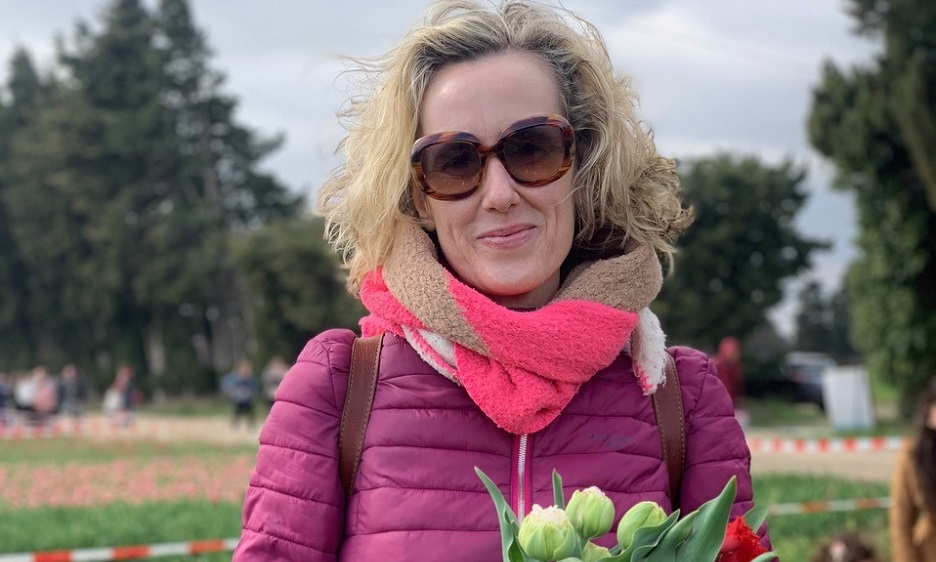
I believe that skilled passion will ultimately find its way just like water that will always overcome obstacles in its ability to flow.
—Antje Huebner
About Antje Huebner
Antje Huebner is the founder and Principal of Hubtone PR. Before that, she served as Public Relations Manager for Ableton, a globally renowned music-software manufacturer. She devised and executed worldwide publicity campaigns, organized events, and was responsible for all media planning and ad bookings. In the years before Ableton, Huebner worked with Matthew Laifer Artists Management in New York City, where she nurtured emerging talents and worked with major arts organizations all over the world. In Germany, Huebner was an artist herself, appearing in operas, theatrical productions, and on television. She then joined Opera Agency Tennigkeit in Düsseldorf. Huebner has studied musicology and the performing arts in Hamburg, Germany.All About Jazz: You have a very diverse background related to music and the arts. How did you end up in PR?
Antje Huebner: The German music software manufacturer Ableton initially hired me to help build their New York City office. Being German, while making my home in Manhattan, was an ideal qualification, along with my background in music. After that task was successfully completed and the new office was running smoothly, I was asked to stay on and was given interesting positions to choose from based on my skill set. This is how I became their Public Relations Manager. We had a great team, and my boss stood by my side when advice was needed. I was given more and more international responsibility, which was an honor and a compliment, but also, with a world-renowned product, a tremendous amount of stress. This was my initiation into Public Relations. I was basically thrown into it and had to figure it all out on the go. I started the PR adventure with a top-level, sought-after job. Leaving comfort zones is tough, but it makes you grow. It was a great experience.
AAJ: Your website describes your agency as connecting "a European approach with an understanding and appreciation of the American mindset and culture." Can you explain that?
AH: What all European countries have in common is that each of them existed before the United States ever did. Although there is a steady influx of immigrants nowadays, there are no countries of immigrants like the US, which was made up of foreigners. So European countries keep clinging to their respective traditions that have developed over centuries. That's a blessing and a burden at the same time. Traditions come with the attachment of a certain rigidity and make people less flexible. A former American boss of mine once told me, "Never breach a contract with the Germans; they won't easily forget and will let you feel it. But what you get from them is structure, attention to detail, and reliability."
On US soil, I once witnessed a meeting between two VIP professionals, where the European participant was invited by his US counterpart to take a seat in the middle of the store. Once they both sat down, the American started discussing fees, percentages, and margins, all the while staff and customers walked around. The Euro guy sat in disbelief while the other person kept talking business. This would have never happened in Europe. There is a stronger sense of discretion. Unspoken rules exist, just as there are different table manners that are honored without a word.
Americans are usually perceived as marketing authorities and convincing salesmen, which, in my opinion, is a valid observation. Relaxed storytelling is a strong American suit. But this is often met with skepticism by Europeans —"Is this honest or for a self-serving purpose?"
Hollywood has been one of the biggest marketing machines ever, and nothing has shaped the worldview of the US more strongly than its movies. Americans are a cool bunch—just like Kojak when he sucks his lollipop while intimidating the bad guys. Trends and major brands keep coming from the US. And no matter where you go in Europe, you will always run into some person wearing a sweater or shirt with New York City, Brooklyn, Los Angeles, or Malibu printed on it. This eventually creeps into your subconscious, and the wearer seems to be cool. To me, this is brilliant marketing.
Many old countries have looked up with respect to the United States, since they have stood as a beacon of freedom and democracy, fighting the good fight in WWII. I thought, this could never change. As a German-born American who has been living in the US for more than two decades, I can meet both sides of the Atlantic with an understanding of backgrounds, mentalities, and histories. Flexibility meets structure. If you will, I am a cultural translator who cherishes both sides.
AAJ: You are German but are based in New York. Why did you make that move, and is New York the best place for you to be for your job?
AH: To answer the first part of why I made that move, I was a TV kid. I watched pretty much every US movie and series I could lay my eyes on. And German TV was flooded with it at the time. I especially loved the stars of the '50s. When I was a kid, these moments altogether shaped my image of the United States.
New York, to me, was the cultural hub where glamour meets dirt; an exciting mixture. To me, it was this lively city that welcomed so many immigrants over time, where cultural diversity seeded the ground to reshape parts of societies into a new whole; less tradition, less rigidity, and new ideas. My boundless curiosity was piqued, and I gave in to it, with a certain naivety at first, buying a one-way ticket—which would have me run into certain funny difficulties at the border—but that's another story.
Coincidentally, I wanted to get out of an old job and had a friend in New York, whom I called up for advice. He then told me to come over and he'd introduce me to important people in the music business. And it happened. I believe I had around four interviews and four incredible offers at the time. Unfortunately, I was completely uninformed and unprepared when it came to the visa and immigration process, and had to learn the hard way. But challenges are there to be overcome, and I'm proud to say that eventually I succeeded.
To the second part of your question, whether New York is the best place for my job, yes, it is. But also no. 'Yes,' because it is a cultural hub that inspires and offers possibilities. You get to experience the best of the best in every field, or musically speaking, to see them perform there. You can connect to important people and tremendous talent.
But 'No,' because the world of the internet makes a physical presence obsolete. Nowadays, you can stay connected and work efficiently while traveling through different time zones. The internet has brought many crucial changes to the world. Independence, as long as you have Wi-Fi, is one of the positives.
AAJ: What roles can you do best to help your client, and what kinds of things are beyond your control?
AH: I can be an advisor and consultant on a client's PR needs. I can connect them, seed the market, and get the word out, but I cannot guarantee coverage. This is dependent on the respective media rep and his/her individual taste. I can lead the horse to the water, make it easy, pitch and explain, but whether they write about a project or not is ultimately up to them. No experienced media rep wants to be pushed; their expertise and tastes are in place and have evolved over time. Honesty and detailed information, however, are crucial. So is respect for the client and the media.
AAJ: Is there a project you are most proud of or have enjoyed the most?
AH: There are so many projects I worked on that I am proud of. But there is indeed one particular project that is special to me because it connected my heritage to the new world and, therefore, was kind of emotional for me.
It was a multi-media project by clarinet virtuoso

David Krakauer
clarinetb.1956
We worked closely with the PR department of the museum. When all parties involved sat in the museum's meeting room around a huge oval-shaped table, I looked out of the window and was in awe, overlooking the Hudson River with the Statue of Liberty. It was an uplifting, even enthusiastic feeling. Here I was, a German citizen who had just received American citizenship a few months prior, putting together this amazing project. And then, there was the overwhelming notion that I was sitting in a place filled with Jewish history—stories of individuals who lived through the unspeakable in my native country. My job never felt more important. This moment was special in many ways. I thought if only my late father could see me now—Bergman's Yentl lyrics came to mind. I was proud to be part of this successful project and grateful for the deep inner connections it drew for me.
AAJ: What do you think musicians need to know most about branding and utilizing social media?
AH: I believe the most important part is to be consistent with your output. There should be a steady flow of information. Keep readers engaged. The best-case scenario is if you have no problem talking about yourself, and it helps a great deal if you enjoy communicating. Building an online following is a work in progress, and you need patience, but the effort eventually will pay off. Create your "social media voice," which will ultimately show who you are as an artist or how you want to be perceived. Show opinionated mindfulness, always be professional, and always be kind because social media is like a reflection; whatever you pour out there will come back to you. Never post, comment, or respond when angry or frustrated; rather, count to ten or get a good night's sleep before you put something out there. The internet does not forget and becomes a magnifying glass in the worst way when used for venting. And, very important, be aware of your own comfort zone in how much you'd like to reveal about your private life. Evaluate carefully.
Collect contacts at gigs. Make sure to have your social media info handy. Try to connect with the interested via social media. Engage, be courteous, and share your artistic opinions, ideas, admirations, and tour schedule. If there is engaging and intelligent consistency, you will eventually have people following, and you will create an audience for yourself.
AAJ: Do you have any other advice for musicians who are trying to get noticed through all of the noise?
AH: I believe that skilled passion will ultimately find its way just like water that will always overcome obstacles in its ability to flow. If you truly love what you do, if there is dedication and talent, and not to be underestimated, if you have something important to say, you have a great chance to cut through "the noise." This also requires being realistic and critical of yourself. Being an artist is constant self-evaluation and hard work. A tough, rewarding, and admirable profession!
AAJ: Tell me about the changes you have seen in the music business and how that affects your work.
AH: Unfortunately, the internet has changed the editorial landscape by taking away the traditional way of advertising. There used to be two columns on which the print media was built: advertising and editorial. One supported the other. With the decline in traditional ads, the media industry had to find new ways of getting financial support, while staying free and independent. Many have given up and gone out of business. The media landscape has diminished to the point that clients' projects might cannibalize each other. By that I mean there should neither be two similar clients/projects, nor too many that you pitch because there is simply not enough space to cover them. This is a nightmare for a PR professional. What if you have the clients, but nobody to write about them? That's not a comfortable situation either. And for clients who want results, a shaky ground for disappointment and blame. Hence, it is a necessity in our profession to always explain and manage expectations.
Currently, there is a discussion taking place about whether we still need music criticism...
AAJ: When you work with an artist, how involved do you get in their career decision-making?
AH: This refers mainly to young artists and newcomers, since the established musician has usually already found a stage persona. Hubtone PR will get the word out on an artist's new project and tell the story connected to it, if there is one. The finished product, which is already a reflection of the artist, lands on our table. We will then make sure that it gets to the respective media representatives in physical or digital form, and collect the reactions to the music. The requirement for taking on a project is to dig both the music and the artist. The "career decision-making" revolves around the project itself—where it should be presented, and to whom it would be of interest.
The manager should be the person to make career decisions, create the overall public image, and provide guidance. If there is no manager, I am happy to share a—hopefully—mindful opinion when asked or refer them to somebody who has the respective expertise as a consultant.
AAJ: Who are some of your favorite musical artists/composers?
AH: The two Richards—Wagner and Strauss—as well as Gustav Mahler. Their music touches me deeply. I remember vividly how excited I was when

Uri Caine
pianob.1956
AAJ: Are you working on any current projects that you'd like to tell me about?
AH: At the time of this interview, I am working on a release for Resonance Records and for ZenneZ Records —a Dutch label—and I am looking forward to working on a release by Whirlwind Recordings, a British label, shortly. The release is called Ancestral with
John O’Gallagher
saxophone
Ben Monder
guitarb.1962

Andrew Cyrille
drumsb.1939

Billy Hart
drumsb.1940
Tags
Chats with Cats
B.D. Lenz
United States
New York
New York City
Dusseldorf
Hamburg
Hollywood
Brooklyn
Los Angeles
Malibu
David Krakauer
John O'Gallagher
Ben Monder
Andrew Cyrille
Billy Hart
Comments
PREVIOUS / NEXT
Support All About Jazz
 All About Jazz has been a pillar of jazz since 1995, championing it as an art form and, more importantly, supporting the musicians who make it. Our enduring commitment has made "AAJ" one of the most culturally important websites of its kind, read by hundreds of thousands of fans, musicians and industry figures every month.
All About Jazz has been a pillar of jazz since 1995, championing it as an art form and, more importantly, supporting the musicians who make it. Our enduring commitment has made "AAJ" one of the most culturally important websites of its kind, read by hundreds of thousands of fans, musicians and industry figures every month.
Go Ad Free!
To maintain our platform while developing new means to foster jazz discovery and connectivity, we need your help. You can become a sustaining member for as little as $20 and in return, we'll immediately hide those pesky ads plus provide access to future articles for a full year. This winning combination vastly improves your AAJ experience and allow us to vigorously build on the pioneering work we first started in 1995. So enjoy an ad-free AAJ experience and help us remain a positive beacon for jazz by making a donation today.

New York City
Concert Guide | Venue Guide | Local Businesses
| More...


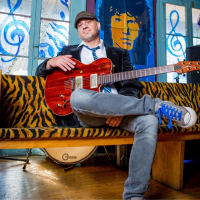





 Buy Now
Buy Now





